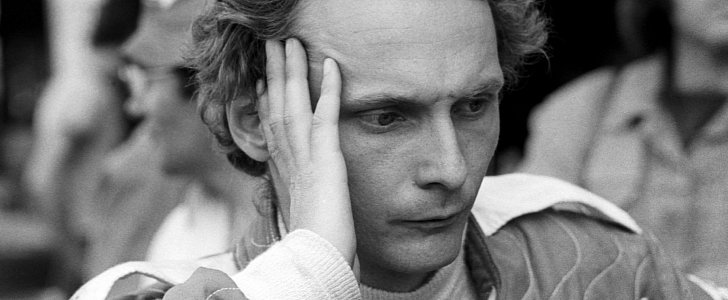A no-nonsense chairman and a racing legend. This is how Mercedes-AMG Petronas describes one of its main figures, the former three-time Formula 1 world champion Niki Lauda, who on May 20 passed away at the age of 70.
The announcement of Lauda’s death was made on Monday night by his family, who said the driver’s passing had been peaceful and in the presence of his family.
“With deep sadness, we announce that our beloved Niki has peacefully passed away with his family on Monday, May 20, 2019,” the family said in a statement.
“His unique achievements as an athlete and entrepreneur are and will remain unforgettable, his tireless zest for action, his straightforwardness and his courage remain.”
Niki Lauda was born on February 22, 1949 in Vienna, Austria and he indulged himself in motorsports from a young age, contrary to his family’s wishes.
After racing for a few years in minor European competitions, Lauda made his way into Formula 2 racing in 1971 as part of the March Engineering team. He was quickly bumped into the main series the next year.
In 1974, Lauda signed with Ferrari, scoring his first Grand Prix win in Spain four races into that season. The following year, Lauda managed to earn his first title of world champion.
In 1976, Lauda was involved in one of the most horrific crashes in Formula 1 history, one that would leave his scared for life. At that year’s German Grand Prix at the Nürburgring, his car swerved off the track and into an embankment, catching fire. Trapped in the car, Lauda suffered severe burns to his head.
Despite the ordeal, Lauda managed to recover and came back to win another F1 title in 1977. His third and last title came in 1984.
After ending his Formula 1 career in 1985, Lauda went to become a businessman, owner of his own airline. On May 26, 1991, one of his planes, a Boeing 767, crashed in Thailand killing all 223 passengers and crew on board.
In 2006, Lauda said in an interview with The Guardian that the worst time of his life was not the period following the Nürburgring accident, but the one following the Boeing crash.
“With deep sadness, we announce that our beloved Niki has peacefully passed away with his family on Monday, May 20, 2019,” the family said in a statement.
“His unique achievements as an athlete and entrepreneur are and will remain unforgettable, his tireless zest for action, his straightforwardness and his courage remain.”
Niki Lauda was born on February 22, 1949 in Vienna, Austria and he indulged himself in motorsports from a young age, contrary to his family’s wishes.
After racing for a few years in minor European competitions, Lauda made his way into Formula 2 racing in 1971 as part of the March Engineering team. He was quickly bumped into the main series the next year.
In 1974, Lauda signed with Ferrari, scoring his first Grand Prix win in Spain four races into that season. The following year, Lauda managed to earn his first title of world champion.
In 1976, Lauda was involved in one of the most horrific crashes in Formula 1 history, one that would leave his scared for life. At that year’s German Grand Prix at the Nürburgring, his car swerved off the track and into an embankment, catching fire. Trapped in the car, Lauda suffered severe burns to his head.
Despite the ordeal, Lauda managed to recover and came back to win another F1 title in 1977. His third and last title came in 1984.
After ending his Formula 1 career in 1985, Lauda went to become a businessman, owner of his own airline. On May 26, 1991, one of his planes, a Boeing 767, crashed in Thailand killing all 223 passengers and crew on board.
In 2006, Lauda said in an interview with The Guardian that the worst time of his life was not the period following the Nürburgring accident, but the one following the Boeing crash.

